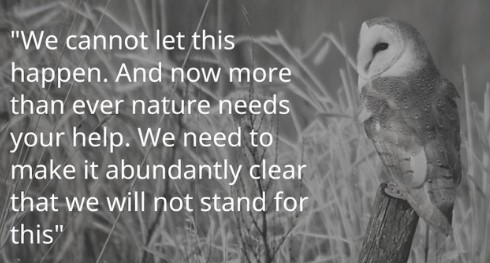A group of major conservation charities led by the RSPB have criticised plans announced in last week’s ‘mini-budget’ to develop investment zones, where planning laws and other regulation will be relaxed for developers.
They fear that the plans to create 38 investment zones in areas including the West of England, South Yorkshire and West of England is “an attack on nature”.
Joining the RSPB in condemning the plans are the National Trust and the Wildlife Trusts.
“Make no mistake we are angry,” said the RSPB in its statement on Friday evening after Chancellor Kwasi Kwarteng announced the investment zone plans.
“What the Government has proposed in today’s mini-budget on top of yesterday’s announcements potentially tears up the most fundamental legal protections our remaining wildlife has. If they carry out their plans nowhere will be safe,” the RSPB said.
⚠️😡Make no mistake, we are angry. This Government has today launched an attack on nature. We don’t use the words that follow lightly. We are entering uncharted territory. Please read this thread. 1/13 pic.twitter.com/NAPfIjLZKA
— RSPB England 🌍 (@RSPBEngland) September 23, 2022
The RSPB added that it is planning a “mass mobilisation of our members and supporters” including lobbying their local MP to counter the government’s plans.
“We cannot let this happen. And now more than ever nature needs your help. We need to make it abundantly clear that we will not stand for this.”
The National Trust has backed the RSPB’s stance saying that it will be “working with other nature charities and supporters to defend important protections for nature long into the future”.
Meanwhile, the Wildlife Trusts have said “we are also incredibly angry and stands with the RSPB “in calling out the unprecedented attack on nature launched by UK government over the last few days”.
“We will be challenging this together and asking for our supporters to stand with us.”
We face an urgent nature and climate crisis. But instead of a plan for nature's recovery on land and at sea, the UK Government is pursuing a dangerous agenda of deregulation that puts the very laws protecting wildlife at risk. But what does this mean exactly? (1/12)
— The Wildlife Trusts (@WildlifeTrusts) September 22, 2022
The RSPB has released a map detailing the areas of England where “anything could be built anywhere” under Kwarteng’s investment zone plans.
If they carry out their plans nowhere will be safe. This map shows legally protected areas in purple and orange (the SACs and SPAs) mapped on to districts, in green, that want investment zones. Places where anything could be built anywhere. And these are just the start. 4/13 pic.twitter.com/hFaY77SXBb
— RSPB England 🌍 (@RSPBEngland) September 23, 2022
Another concern of the RSPB is that the government is looking to scrap the Environmental land management scheme, where farmers are rewarded financially for work that protects nature.
This scheme has “helped many threatened species recover”, said the charity, which now fears that farmers will be paid based on how much land they own “which means most of the taxpayer cash just goes to big farms without strings rather than helping nature”.
The Treasury said that the investment zones “will offer generous, targeted and time limited tax cuts for businesses and liberalised planning rules to release more land for housing and commercial development”.
“These will be hubs for growth, encouraging investment in new shopping centres, restaurants, apartments and offices, and creating thriving new communities.”













Recent Stories